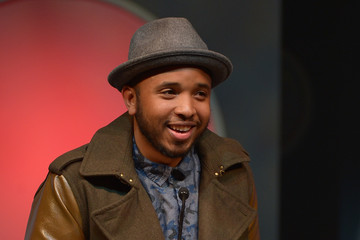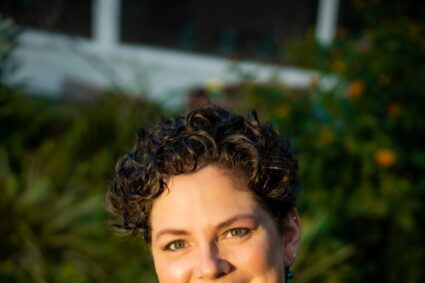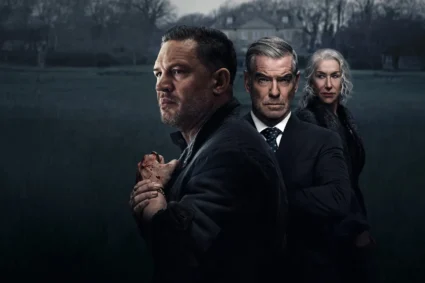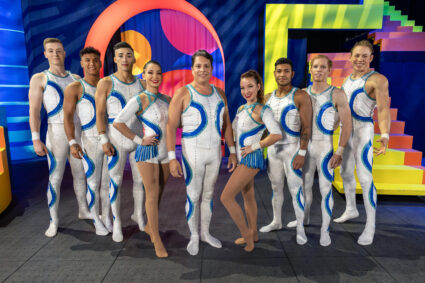
In our final director interview this week, I present to you another first time director. This week, he’s making his directoral debut in the new movie “Dear White People”. Ladies and gentlemen, for your reading pleasure, writer/director Justin Simien
You created this picture eight years ago. It started off as “2 Percent”. Walk us through of how it went from “2 Percent” to “Dear White People”
I was in college and I was having a conversation with the black student union. My really good friend Justin, also named Justin at the time, were kind of musing on “Are we friends with all these people just because we are black or because we would like them?” And we got into this conversation of like toggling of like “How you talk with your white friends and how you talk with your black friends?” Just the pressure of that and I thought it was funny. I was trying to figure out of what do I want to say. I thought it was an interesting point of view to talk about identity. The first screenplay was like a Robert Altman piece. We follow like 8 or 9 characters that in all represent different aspects of the black experience through a year of a school that was like a thinly veiled version of my school then.
Film school doesn’t prepare to write multi-protagonist screenplay. I kind of kept working it through the years. I wrote other things and started life as a publicist. I had all these returns here and reworked it as a TV show and then a different kind of screenplay. At some point, Stephanie Lane came calling and looking for a script. I remember feeling “Man, I really wish 2 Percent was ready for her but it wasn’t. So I beat myself up over that. I vowed that the next time someone comes calling that the script is going to be ready.
That point had elected Obama elected President and this sort of “He’s from Kenya” crap started. The post-racial America bubble began to burst a bit. That was the moment when the movie became “Dear White People”. That’s when it really became more about the American black experience and larger than I understand it. That’s when it took a more satirical tone. That’s when it really began to be about something. I worked that script with every possible waking hour that I had. I took it to an organizer workshop and we all truly love it.
I love how the film touches some of the college stereotypes like the bookworm nerd, the jock and so forth. What went into the casting of those roles and were any of the characters based on people that you knew?
They definitely an amalgamation of people. I would say that I been to all of them at some point. I’ve done those things to get along as if were a survival tactic. I sort of claimed to no identity like Wyatt, hinged to everything on my black identity like Sam, try to be the correct black male like Troy, tried to use my blackness to get ahead like Coco. I kind of done them all but they are certainly an amalgamation of people that I knew. The first screenplay had many more characters that kind of had conjoined experiences to sort of narrow the narrative down. They’re all dealing with identity issues but I felt like four was the right amount of points of view on that.
In terms of the casting, because of the nature of a multi-protagonist screenplay, you really can’t spend all the time you like to with each character. I really wanted to make sure that I went with people who can certainly play out the archetype but would give me worlds upon worlds of layers beneath them. I want them to surprise me and make me feel that I was hearing words that someone else wrote. All of the four leads did that. Brandon (Bell) was really the first person that ever played Troy. He read Troy at the very first workshop table read. He was Troy in the concept trailer. He really beat out a lot of big names for the role in the final film.
I remember Tyler (James Williams) came in and it was so refreshing because I laughed out loud when he did his piece. The Lionel’s was getting to. (He laughs) “Shoot me now” not because his performance weren’t great. They were stellar but it was just so tragic. Tyler came in with the exact scene and I laughed out loud. I fell in love with his portrayal of Lionel. Similar things happened with all of them and it felt great.
After directing your first film, what is the lesson that you will take into your next project?
A sense of personal responsibility because film is so collaborative and you are so dependent on other people’s finances, resources, creative ideas, distribution. You are relying on the outside to get the thing done. It’s sometimes very easy to fall into the trap of not being personally responsible. If someone says “no” to the work or someone says, “we can’t finance enough for the budget”, it’s very easy to give up, pack your bags and defer the dream.
For this movie, something inside of me snapped and I just refuse to take “no” for an answer and that was a very difficult lesson to learn, not in my head but in my heart. It’s something I want to do. This is a story that I want to tell. I have to take full personal responsibility for getting it made even though I have to rely on other people’s money, resources and creative ideas. I have to get it out to the world. It’s very easy to not do that because its very easy to be given a script and think I can do something with this, that somebody else wrote and just doing this to say “Yes”, then I’ll show up and direct it and go home. That’s a path I could take but it much more gratifying to go with the story in my heart to tell and take on the personal responsibility of getting it made.
There are other ways that I could’ve found my way into the world as a film director then telling this story or even making an independent film specific to me I am glad that it happened this way because I don’t want to do it any other way. This movie is continuing to teach me that lesson especially since it causes controversy. People who haven’t seen the movie in particular will have their opinions about it that “I wish they didn’t have…” and people who have see it that take something different that I have met. I have to be comfortable with that. If I want to be half as good as the people that I admire, I have to be totally cool with people not totally getting it or loving it all the time.
I heard that you went through Indiegogo to finance the film, is that correct?
Indiegogo helped get the film started. We raised about $50,000 and that allowed us to do casting and location scouting. It costs so much money to make a movie even before you even start making a movie. The film is fully financed through Code Red Films. They came in for the full budget to actually get us into production because at that point the most we were able to do is cast, bring on our producing team and location scout.
Who were your inspirations growing up as a filmmaker?
You know this is going to sound weird but I’m just going to say it for it’s the truth… Michael Jackson was the biggest creative influence on me. As a kid, I truly thought that he was magical. I felt like that he can walk out of his house and he shoots a shooting star and he becomes a robot. I believed this when I was a kid.
As I started getting into filmmaking specifically, I remember the first time I watched a Stanley Kubrick film. It was “Eyes Wide Shut”. At that time, I was in the high school performing visual arts in Houston. I was studying theatre and was moved by the experience of live theatre can really confront you with the human experience. The first time I felt that way with a film was Eyes Wide Shut. I was far too young in high school to really understand what the film was talking about and dealing with. It just rocked me to the core because it was unlike any other movie I have seen up until that point. I thought it was so boring for the first thirty minutes because, again, I am sixteen and don’t know any better. By the time I got to the end of the film, I was so blown away at what it had said and the journey it had took me on. It just took my breath away.
Check out “Dear White People” – IN THEATRES NOW


